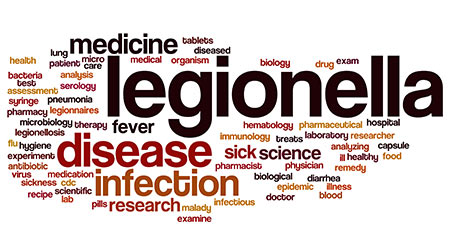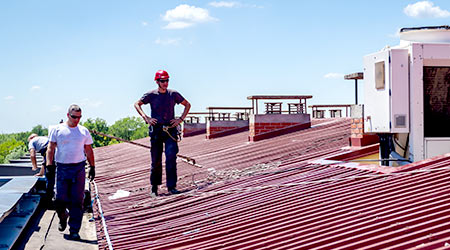
Water Watch: Legionella Strikes University
May 18, 2018
Plumbing systems in institutional and commercial facilities present facility managers with a range of challenges. These issues range from ensuring reliable operation and performing efficient testing and repairs to making certain the systems do not waste water and drive up utility costs.
The challenges go beyond the day-to-day operation, however. Managers also must be vigilant in testing plumbing systems in order to avoid the presence of the Legionella bacteria, which can result in the deadly Legionnaires’ Disease.
Read: Confronting Legionella
The University of Windsor in Ontario, Canada, has turned off the hot water taps in six of its buildings on its main campus after finding Legionella bacteria in the pipes, according to The Windsor Star. The bacteria can cause a form of pneumonia better known as Legionnaires’ Disease. It can also cause a less serious illness called Pontiac Fever, which resembles a mild influenza.
“We had an issue last year and it was decided, as part of a preventative maintenance program, to do annual testing,” says John Coleman, the university’s director of public affairs and communications. “We found Legionella bacteria in six buildings. We wanted to immediately eliminate any risk to the people using those buildings, so we shut off the hot water taps. The next step is to flush the pipes and re-test. We want to isolate the problem and find out the reason for this.”
Learn more: ASHRAE’s Legionella standard
Lora Piccinin, Windsor-Essex County Health Unit spokesperson and manager of Infectious Disease Prevention, says the health unit doesn’t get directly involved unless someone becomes ill. Last year there were seven local cases of Legionnaires’ Disease, the last occurring in late summer or early fall.
Legionnaires’ Disease first came to prominence after a 1976 outbreak killed 29 people at an American Legion convention in Philadelphia. According to Public Health Agency of Canada, the average number cases of Legionnaires Disease reported annually across the nation is fewer than 100.
For the bacteria to spread to humans, the airborne droplets of highly, contaminated water must be inhaled. A less common way of catching it is in small amounts of water reaching the lung as a result of choking while drinking.
This Quick Read was submitted by Dan Hounsell — dan.hounsell@tradepressmedia.com — editor-in-chief of Facility Maintenance Decisions, and chief editor of Facilitiesnet.com.
Next
Read next on FacilitiesNet











